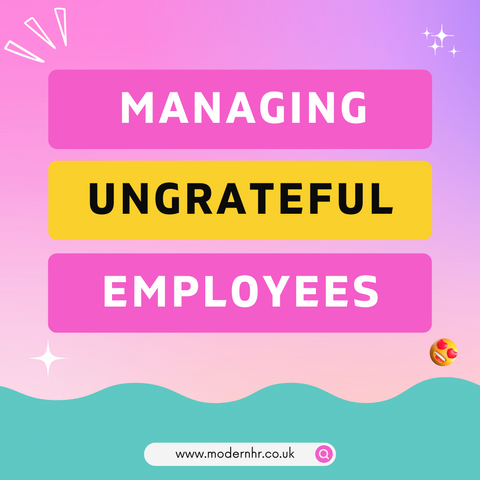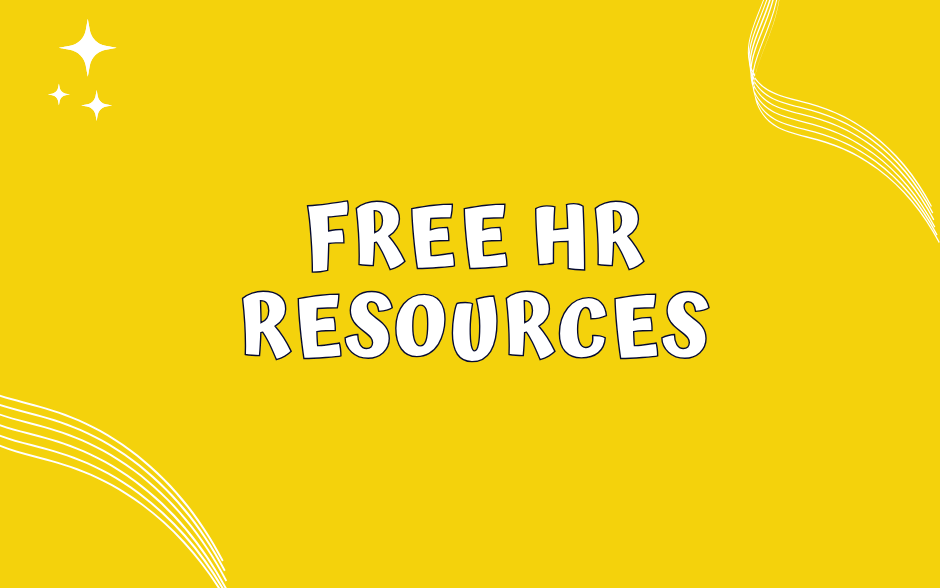How to manage ungrateful employees

The Cambridge Dictionary definition of ‘entitled’ is: “Feeling that you have the right to do or have what you want without having to work for it or deserve it, just because of who you are.” When small business owners talk to me about their “ungrateful and entitled employee” what exactly do they mean?
Some employees believe they are automatically entitled to things like flexible working, pay and promotions, regardless of how hard they work. And whatever you do give them is never enough. They complain or appear ungrateful of what you do for them.
Does that resonate with you?
WHY THIS IS A PROBLEM
Managing an employee who continually feels they’re entitled to more than they get, is a challenge. It’s time-consuming, exhausting, and can have a toxic effect on your business. It's problematic behaviour.
Of course, it often depends what their beef is. If they believe they should be paid more, but you can’t afford it, there’s not a lot you can do. But, if an employee feels like they should be allowed to work from home because they’re not customer-facing, then perhaps there's a compromise?
This is the real challenge for you as a leader. 👉 Sussing out whether your employee is making a realistic plea. Or whether you think they just act like they have a God-given birth right. You also need to think about how the decisions you make, will impact on the rest of your team. 🤔
RECOGNISING THE UNGRATEFUL AND ENTITLED
To bring it to life for you, entitled employees demonstrate the following behaviours:
😒 COMPLAINING LOADS
Their employee is pre-occupied with complaining about their own situation. With little consideration for the rest of the team, or the business as a whole. Except to compare for ‘fairness’ purposes. For example, they regularly describe how they’re not getting the hours THEY want, but Joe Bloggs is.
🙅 NEVER SATISFIED
Their employee doesn’t appear to be motivated by the benefits or rewards they do get. For example, they display apathy when they get a pay rise.
🗣 DISRUPTIVE
Their employee bad-mouths the business and the boss, causing negative vibes amongst team members.
Is this something you can relate to? 🤔
ARE YOU THE PROBLEM? 😱
An entitlement culture amongst your workforce could be down to your behaviour, or your business decisions. So, make sure you’re clear and consistent about how you treat your staff.
A brilliant way to communicate what your employees should expect from you – and what you in turn expect from them – is through your employee handbook. Essentially, it’s a collection of HR policies that spell out how you do business. An employee handbook will also help you to treat all your employees in the same way. To find out more about employee handbooks, take a peek at a previous blog I wrote.
If you don’t already have an employee handbook, it’s never too late to introduce one. Feel free to visit my online shop to get your hands on one today.
BE A SPORADIC REWARD GIVER
Are you guilty of rewarding your team too often? I’m talking M&S sandwiches every time you have a meeting? Or, throwing vouchers at staff who are simply doing their job?
It’s just less special when it becomes the norm, right?
Instead, you should reward your people for going above and beyond, and do it more sporadically – so it’s a genuine surprise for them when it happens. 🎉
SPOT THE PROBLEM FROM THE GET-GO 👀
When you’re recruiting, interviews are the perfect opportunity to judge a person’s expectations of the job you’re advertising, and the workplace in which they could potentially be joining.
By asking the right questions, you might be able to spot a problematic candidate, and avoid hiring them in the first place! This is particularly important if they’ve come from a big corporate organisation, that has a big employee perk budget. 💷💷💷
For a bank of questions to ask at interviews. And questions you should NEVER ask, check out my Interviewing Toolkit.
PRACTICE GRATITUDE IN YOUR BUSINESS 🙏
Naturally, a way to overcome the ungratefulness of an employee, is to build a culture of gratitude. A place where you celebrate success, regularly thank one other, are grateful for the opportunities you have, reward fairly, and recognise those who go above and beyond what’s required. Expressing gratitude can be a game changer. Simples!






